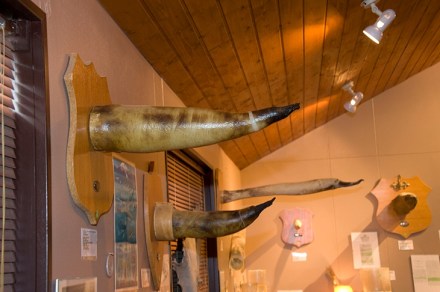Iceland is bursting with cabinets of curiosities
Competition is stiff among museums in Iceland. The Phallological Museum in Húsavík, devoted to the penis, stands tall in a crowded field: 265 museums and public collections operate in a country of 330,000 — a population, incidentally, with the highest literacy rate in the world. A. Kendra Greene, an American writer and artist, has worked in a number of museums, and her affection for them is touching. Indeed, it is the blurred edge between a few shelves in a front room and a civic institution that originally drew her to northern latitudes. She writes of Iceland: I have never known a place where the boundaries between private collection and public


